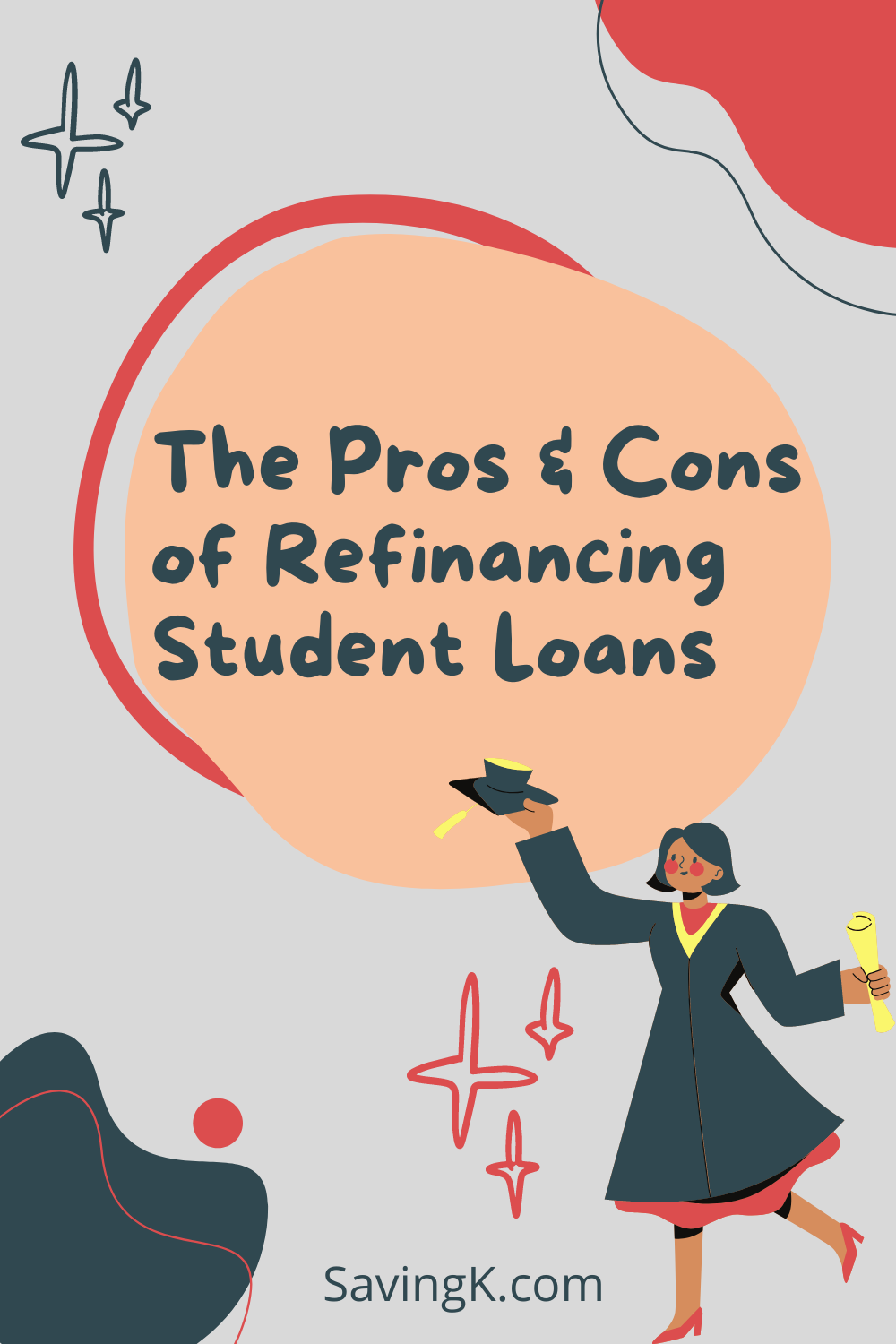
Student loans are often necessary, especially when you do not have enough funds for college and you don’t have a 529 Plan. It is a form of financial aid that allows you to pay for your education over time. However, with the current state of the economy and job market, many recent graduates are finding it difficult to keep up with their student loan payments.
Are you struggling to make student loan payments?
You are not alone. Many graduates are in the same situation. But there is a possible solution for this. Refinancing your student loans can lower your monthly payments and save you money over the life of your loan.
Refinancing your student loans can be a great way to get relief from your monthly payments and save money over the life of your loan. However, refinancing may not be the best option for everyone. It’s important to weigh all of your options before deciding if refinancing is right for you.
Contents
What exactly is refinancing?
Refinancing your student loans is when you take out a new loan to pay off your old student loans. The new loan has a lower interest rate than the old loan, which can save you money over time.
Pros of Refinancing Student Loans
Here are a few pros of refinancing your student loans.
1. Lower Interest Rate
The biggest pro of refinancing your student loans is that they can save you money. You’ll pay less interest during the life of your loan if you have a lower interest rate. A lower interest rate can potentially add up to hundreds or even thousands of dollars in savings.
2. Lower Payments
Another pro of refinancing is that it can lower your monthly payments. This can give you much-needed relief from your monthly payments.
3. Faster Payoff
Refinancing can also be a good way to pay off your student loans faster. If you have a high-interest rate, refinancing to a lower interest rate can help you save money and pay off your loan sooner.
Click here to compare student loan refinancing rates from up to 13 lenders without affecting your credit score for free. Rates range from 1.86% to 8.73% APR.
Cons of Refinancing Student Loans
There are a few cons to refinancing your student loans.
1. Variable Interest Rate
The first con is that you may not be able to get a lower interest rate than your current loan offers. If you don’t lock in an interest rate, you may end up with a variable interest rate that could turn out to costing you a lot more in interest. If this is the case, I recommend not refinancing.
2. Closing Costs
Another con of refinancing is that you may end up paying more in fees if you have to pay a refinancing fee or closing costs. These fees may potentially offset any interest rate savings you would have otherwise received.
3. Lose Benefits
Lastly, if you refinance your federal student loans, you may lose certain benefits. The benefits of federal student loans include:
- Tax advantages that get back some of the money you spend on loan interest.
- Income-based repayment plans are available if your payments are high compared to your income.
- Forbearance options that allow you to temporarily stop making payments.
- Forgiveness options where your federal student loans may be forgiven, canceled, or discharged due to certain situations.
The benefits of a federal student loan are more advantageous to low and middle-class borrowers. If you are in a high tax bracket, the risks of refinancing may outweigh the benefits.
Is refinancing the right choice for you?
Before you do decide to refinance your student loans, it’s important to consider all of the pros and cons. Weigh your options and do your research in order for you to make the decision that’s best for you.
Things to consider
There are a few things to consider when trying to decide if refinancing is the right choice for you. Here are a few things to look into:
-
Your current interest rate
If you have a high-interest rate, refinancing to a lower interest rate can save you money over time.
-
Your loan term
The longer your loan term, the more interest you will pay in total.If you can afford to make greater monthly payments, refinancing to a shorter loan term may be an option.
-
The fees
Refinancing student loans may come with fees. Make sure you know how much the fees are and if they’re worth it.
-
Your current loan balance
If you have a lot of debt, refinancing may not be the best option for you. You may want to consider other options like income-based repayment plans or consolidation.
You should also consider if you’re comfortable with the idea of having one loan instead of multiple loans. And lastly, research different lenders to find the best deal for you.
Laurel Road offers fast, easy refinancing without the kinks. They offer a simplified process with zero added costs for fees. Discover your rate options online in less than 5 minutes with no hard credit pull required.
Alternatives to Refinancing Student Loans
If refinancing isn’t the right choice for you, there are a few other alternatives to consider.
Consolidation
Consolidation is when you combine all of your loans into one loan with a new interest rate. This can simplify your monthly payments and may lower your interest rate.
Income-based repayment plans
Income-based repayment plans are available for federal student loans. These plans cap your monthly payments at a percentage of your income and also offer loan forgiveness after a certain amount of time.
Forbearance
Forbearance is when you’re allowed to stop making payments or reduce your monthly payments for a period of time. This can be helpful if you’re experiencing financial hardship.
These alternatives are beneficial in their own ways. It’s important to research each one and see which is the best for you.
Tips for paying off your student loans quickly
If you want to pay off your student loans quickly, there are a few things you can do.
- First, make extra payments whenever possible. This will reduce the amount of interest you have to pay.
- You can also try refinancing to a shorter loan term. This will also reduce the amount of interest you have to pay in total.
- Lastly, make sure you take advantage of all the benefits available to you like income-based repayment plans and forbearance.
Final Thoughts
So, should you refinance your student loans? It depends. If you can get a lower interest rate and you’re comfortable with the length of the new loan, refinancing could be a great option for you. But if you don’t qualify for a lower interest rate or if you think you might need to borrow again in the future, it might be better to stick with your current loan. No matter what, make sure to shop around and compare rates before making any decisions. And most importantly, stay on top of your payments so that you can pay off your loans as quickly as possible. We hope this article was helpful!





